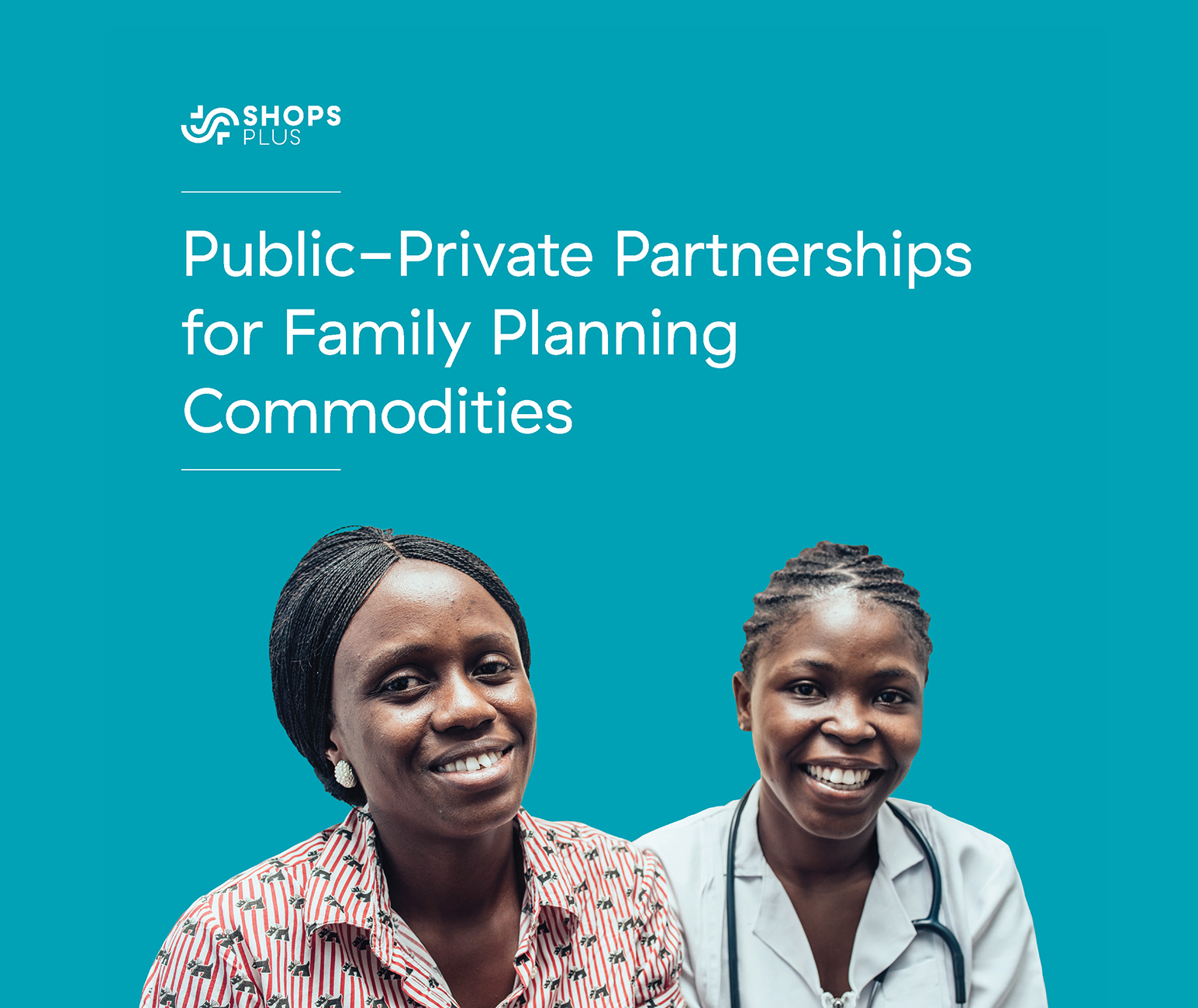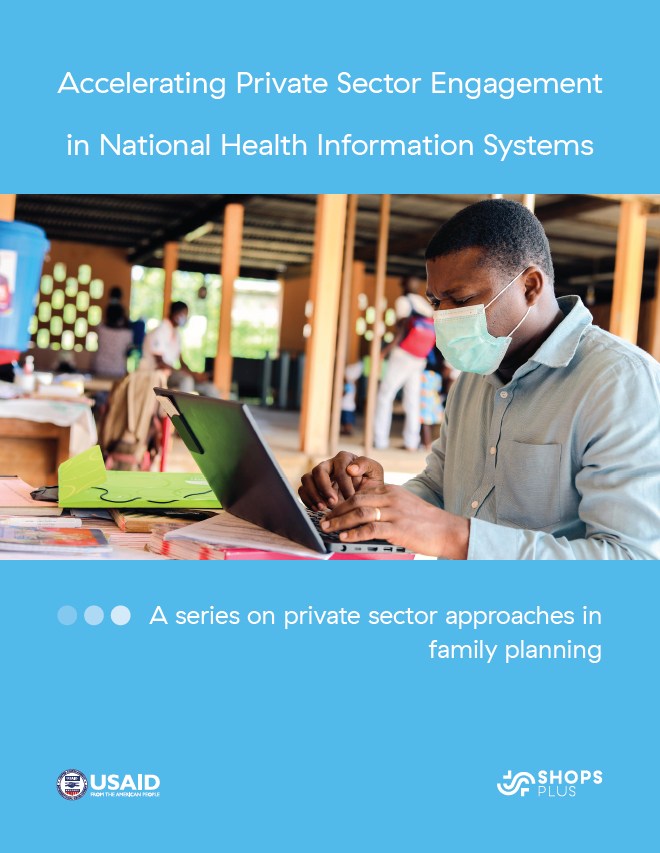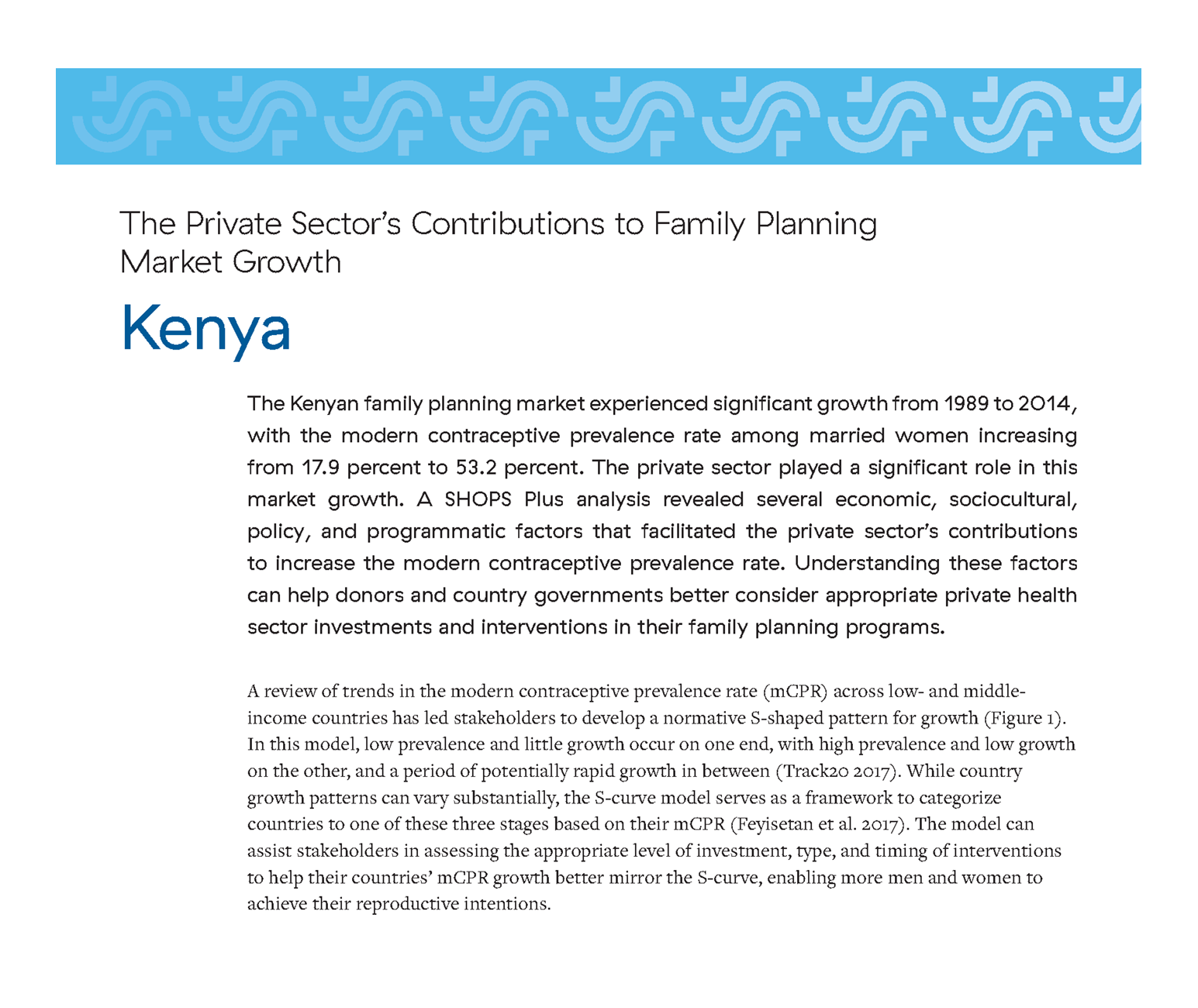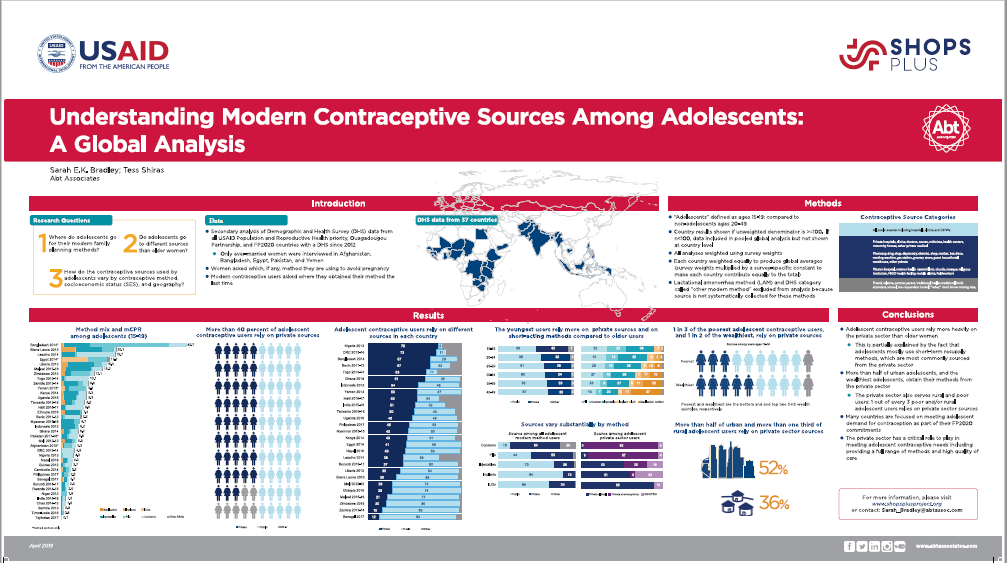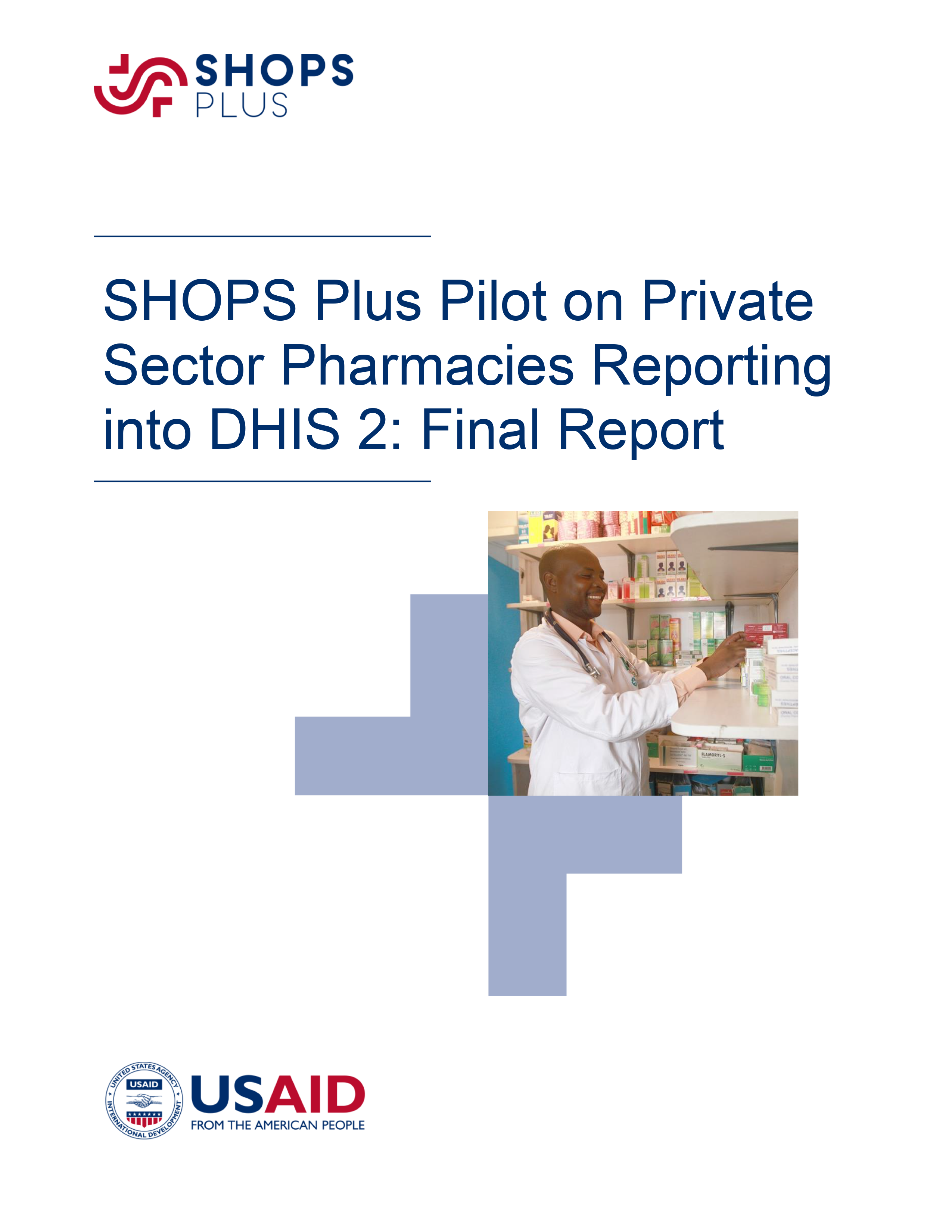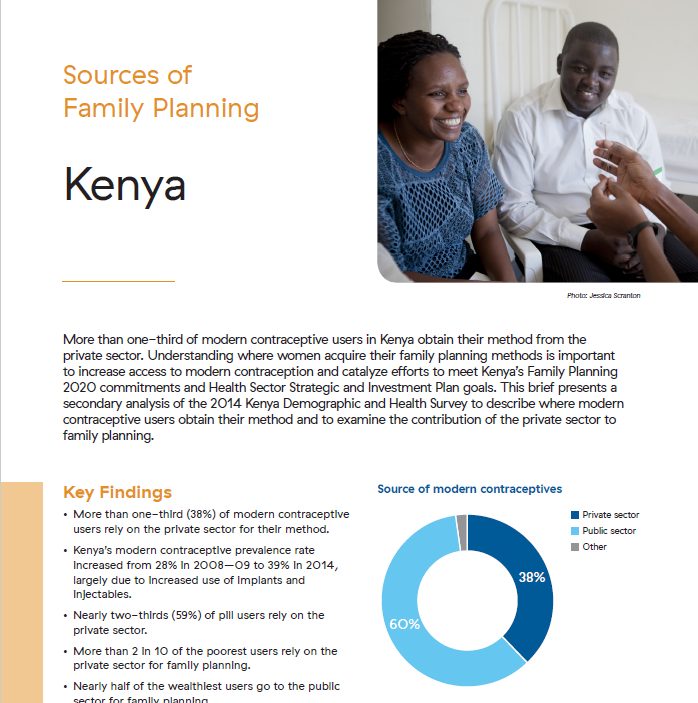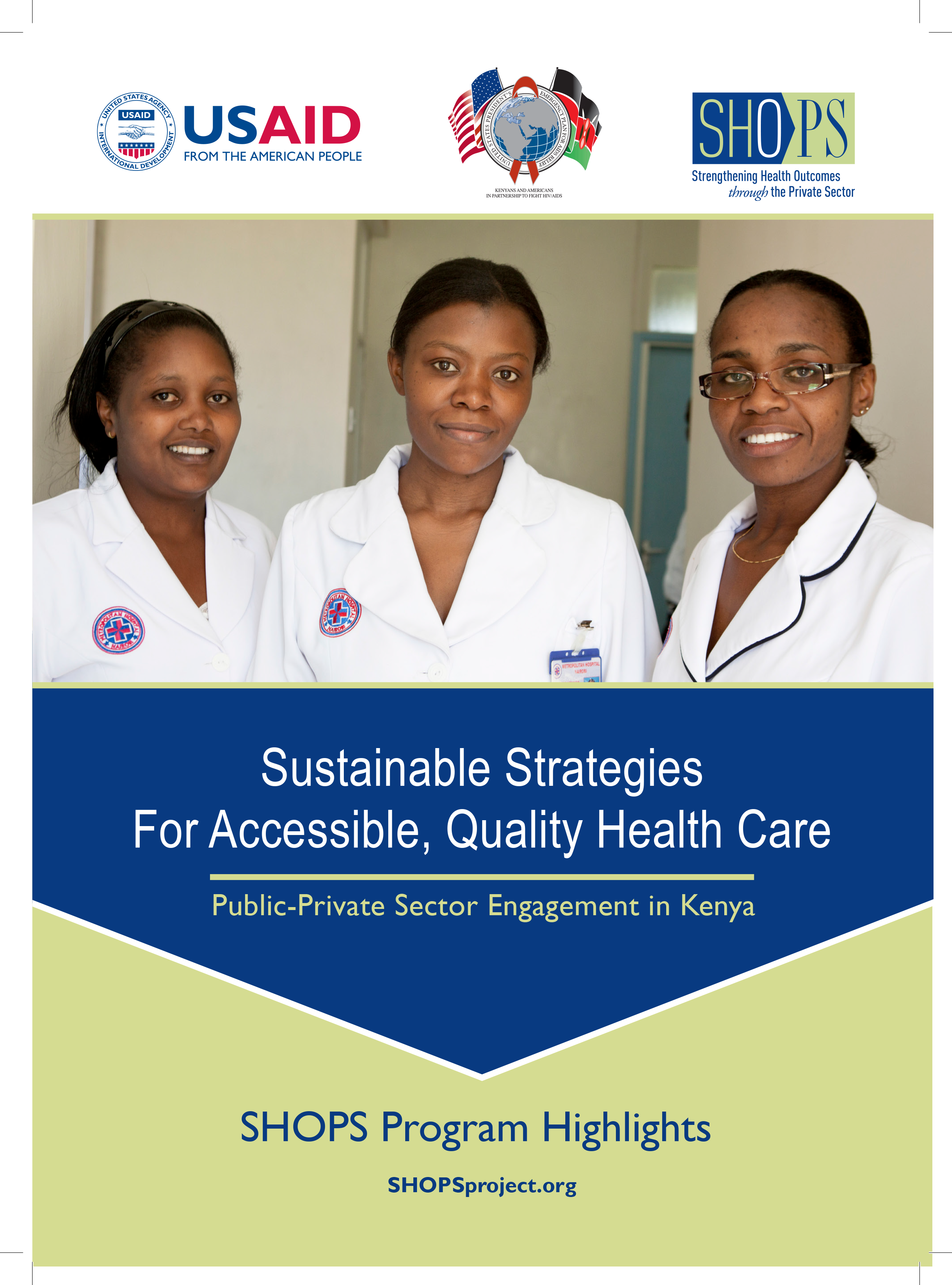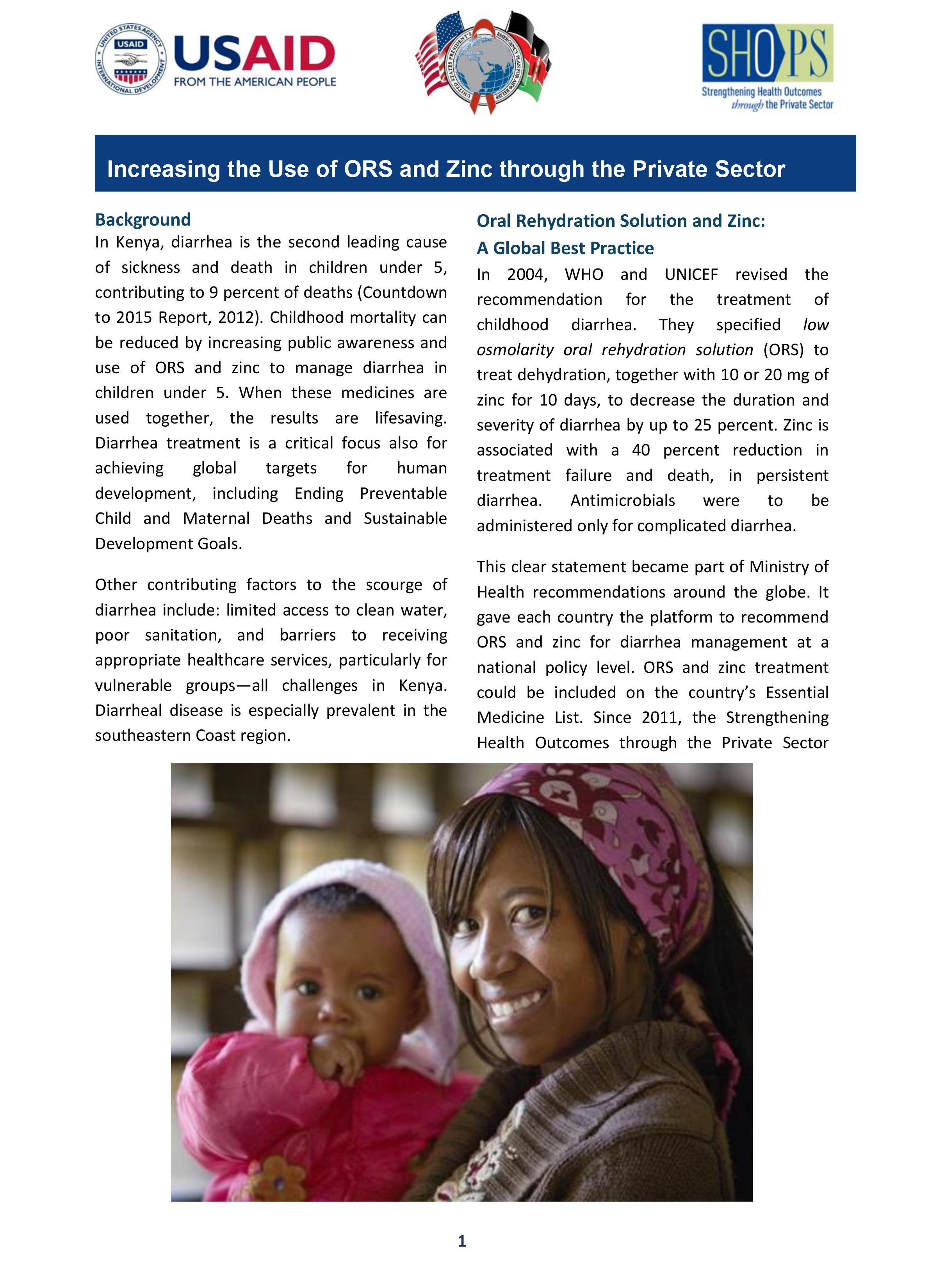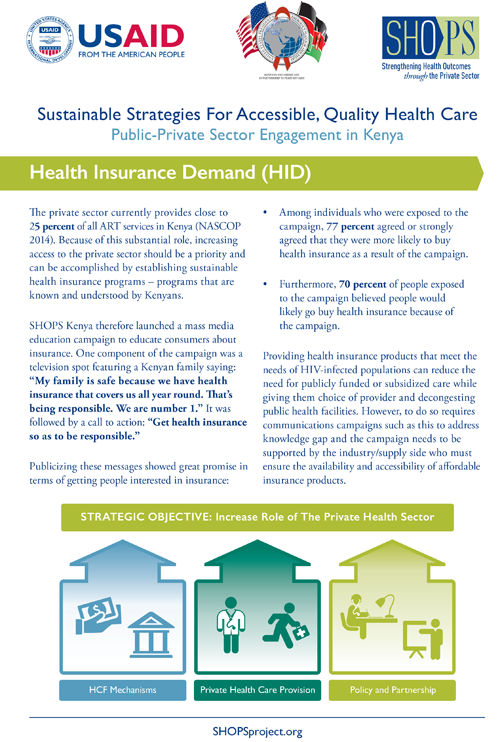
Resource Library
Public-Private Partnerships for Family Planning Commodities
Many governments and donors support the use of public-private partnerships to distribute publicly managed commodities through the private health sector to overcome barriers to access for the full range of family planning methods. This brief draws on country experiences with commodity partnerships for family planning in Kenya, Nigeria, and Tanzania. It documents approaches used to place government-managed commodities into the hands of private providers and ultimately the women seeking the method. It examines factors that motivated public and private actors to pursue partnerships to enable private sector provision of long-acting reversible contraceptives, and how well the implementation of the partnerships aligned with those motivations. The brief discusses the challenges and lessons learned from this experience, and concludes with reflections about when and how donors and governments might decide to replicate, improve, or scale up these partnerships.
Resource Type : Brief
Country : Kenya, Nigeria, Tanzania
Year : 2021-03-26T14:00:00
Language : English
Project : SHOPS Plus

Resource Library
Accelerating Private Sector Engagement in National Health Information Systems
A national health management information system (HMIS) is the foundation for effective oversight, management, and provision of health information, products, and services in a country. The private sector is often a significant source of health products and services, yet few countries have fully galvanized routine reporting by private health care providers. This results in incomplete data on the types, volumes, and quality of services and products delivered through private sector channels and limits the ability of public health officials to effectively engage and steward both the public and private health sectors. To address this gap, this report establishes a framework for examining and supporting private sector participation in a national HMIS. The framework identifies common barriers to private provider engagement in a national HMIS, shares global case studies, and offers actionable recommendations to governments, private providers, donors, and implementing partners.
Resource Type : Report
Country : Ghana, Kenya, Madagascar, Senegal, Tanzania
Year : 2021-03-25T16:00:00
Language : English
Project : SHOPS Plus

Resource Library
Kenya: The Private Sector's Contributions to Family Planning Market Growth
The Kenyan family planning market experienced significant growth from 1989 to 2014, with the modern contraceptive prevalence rate among married women increasing from 17.9 percent to 53.2 percent. The private sector played a significant role in this market growth. A SHOPS Plus analysis revealed several economic, sociocultural, policy, and programmatic factors that facilitated the private sector’s contributions to increase the modern contraceptive prevalence rate. Understanding these factors can help donors and country governments better consider appropriate private health sector investments and interventions in their family planning programs.
This is one in a series of briefs that examines the family planning markets in six countries. Click here to access the additional country briefs and a full synthesis of the six country analyses.
Resource Type : Brief
Country : Kenya
Year : 2021-01-13T08:00:00
Language : English
Project : SHOPS Plus

Resource Library
Understanding Modern Contraceptive Sources Among Adolescents: A Global Analysis
The unique contraceptive needs of adolescents are increasingly recognized among the global family planning community. Recent reports on adolescent contraception emphasize the need for high-quality data to inform efforts to increase adolescent contraceptive use, access, and choice. SHOPS Plus conducted a secondary analysis of Demographic and Health Survey data in 37 countries to examine where adolescents obtain their contraceptives, and how sources vary by method and socioeconomic status. The results elucidate the important role that the private sector plays in helping adolescents meet their reproductive intentions: on average, 40 percent of adolescent users rely on private sector sources, with substantial variation by country. Private sector reliance is higher among urban and wealthy adolescents, but the private sector also serves 1 in 3 poor and/or rural adolescent users. Policymakers and program implementers must include the private sector in efforts to successfully meet contraceptive demand and increase access among youth.
This poster was presented by Sarah Bradley at the Population Association of America Annual Meeting on April 11, 2019 in Austin, TX.
Resource Type : Presentation
Country : Bangladesh, Benin, Ethiopia, Ghana, Haiti, India, Kenya, Malawi, Mali, Nepal, Nigeria, Pakistan, Philippines, Rwanda, Sénégal, Senegal, Tanzania, Uganda, Zambia, Zimbabwe
Year : 2019-07-25T14:54:22
Language : English
Project : SHOPS Plus

Resource Library
Empowering Women Health Providers through Social Franchising: Stories from Kenya and Uganda
While social franchising interventions were designed to achieve positive health outcomes and were not intended to improve gender equality, franchisors in some countries target primarily female cadres such as midwives. As a result, social franchising may unintentionally help women providers overcome gender-related barriers. SHOPS Plus visited social franchisees in Kenya and Uganda to better understand how social franchising has affected the lives of women franchise owners. This brief analyzes the findings from interviews with women providers using the Social Franchising Empowerment Framework. It finds that social franchising empowers women providers, specifically within their ability to make and implement decisions and perform tasks as well as in their self-confidence. Based on the findings, the brief concludes with recommendations on how social franchises and the private sector overall could take a more intentional approach to improving women’s empowerment outcomes.
Resource Type : Brief
Country : Kenya, Uganda
Year : 2019-05-24T16:00:00
Language : English
Project : SHOPS Plus

Resource Library
SHOPS Plus Pilot on Private Sector Pharmacies Reporting into DHIS2: Final Report
Globally, governments and multilateral organizations have invested significant resources into efforts to increase the quality and quantity of data available to monitor progress toward global health goals. In many countries, however, these data are incomplete, as a large portion of sources of care, particularly private pharmacies, are often not included in government health management information systems. In Kenya, private pharmacies have largely been left out of efforts to improve private sector data management and sharing to date, despite their importance as a frontline source of both family planning and child health products. SHOPS Plus designed and implemented an activity that facilitated routine family planning and child health data sharing between participating private pharmacies and the Kenyan government through DHIS2. The activity sought to answer two major questions: (1) What are the barriers and motivations around private sector data sharing? (2) What tools, strategies, and approaches are needed to support effective and timely reporting by the private sector? This report provides a summary of the activity as well as looks at what lessons can be learned from the results.
Resource Type : Report
Country : Kenya
Year : 2019-02-28T12:00:00
Language : English
Project : SHOPS Plus

Resource Library
Sources of Family Planning: Kenya
More than one-third of modern contraceptive users in Kenya obtain their method from the private sector. Understanding where women acquire their family planning methods is important to increase access to modern contraception and catalyze efforts to meet Kenya’s Family Planning 2020 commitments and Health Sector Strategic and Investment Plan goals. This brief presents a secondary analysis of the 2014 Kenya Demographic and Health Survey to describe where modern contraceptive users obtain their method and to examine the contribution of the private sector to family planning.
Resource Type : Brief
Country : Kenya
Year : 2018-11-13T17:31:00
Language : English
Project : SHOPS Plus

Resource Library
Sustainable Strategies for Accessible, Quality Health Care: Public-Private Sector Engagement in Kenya, 2012–2015
In order to help increase the role of the private sector in health, especially within the context of the country’s HIV response, the United States Agency for International Development (USAID) mission in Kenya engaged the Abt-led Strengthening Health Outcomes through the Private Sector (SHOPS) project to design and implement a program to establish sustainable strategies for accessible, quality health care.
Beginning in February 2012, SHOPS Kenya began leveraging and strengthening the capacity and financial resources of the private health sector to improve well-being for all Kenyans through the provision of quality HIV, family planning and reproductive health, and child health services.
The project addressed key challenges that limited the ability of the private health sector to fully contribute to a strong, sustainable health system in Kenya by bringing together stakeholders including policymakers, private health insurance companies, and private health care providers. With these partners, SHOPS worked to strengthen the policy environment, increase access to health services by reducing financial barriers, and strengthen providers’ capacity.
Resource Type : Brief
Country : Kenya
Year : 2018-08-09T10:00:00
Language : English
Project : SHOPS

Resource Library
Increasing the Use of ORS and Zinc through the Private Sector
In Kenya, diarrhea is the second leading cause of sickness and death in children under 5, contributing to 9 percent of deaths (Countdown to 2015 Report, 2012). Childhood mortality can be reduced by increasing public awareness and use of ORS and zinc to manage diarrhea in children under 5. When these medicines are used together, the results are lifesaving. Diarrhea treatment is a critical focus also for achieving global targets for human development, including Ending Preventable Child and Maternal Deaths and Sustainable Development Goals.
In just over three years, with limited resources, the SHOPS Kenya team led a multipronged approach to increase availability of ORS and
zinc, by partnering with local manufacturers and suppliers to reach health providers and retailers and by raising awareness with demand generating activities to reach caregivers.
Resource Type :
Country : Kenya
Year : 2018-08-08T15:00:00
Language : English
Project : SHOPS

Resource Library
Sustainable Strategies for Accessible, Quality Health Care: Public-Private Sector Engagement in Kenya
The private sector currently provides close to 25 percent of all ART services in Kenya (NASCOP 2014). Because of this substantial role, increasing access to the private sector should be a priority and can be accomplished by establishing sustainable health insurance programs – programs that are known and understood by Kenyans. SHOPS Kenya therefore launched a mass media education campaign to educate consumers about insurance.
In addition, of the approximately 1.4 million people living with HIV in Kenya today, only 755,226 (53%) are receiving lifesaving anti-retroviral therapy (ART). This is due in large part because the collection, transfer and utilization of patient data from providers to stakeholders have been grossly inefficient. In response, SHOPS Kenya explored the use of an electronic data interchange (EDI) to automate the transfer of billing information from providers to insurers to reduce the cost of insurance for Kenyans and organize data to assist with controlling the epidemic.
Resource Type :
Country : Kenya
Year : 2018-08-07T17:00:00
Language : English
Project : SHOPS
Pagination
- Previous page
- Page 3
- Next page


